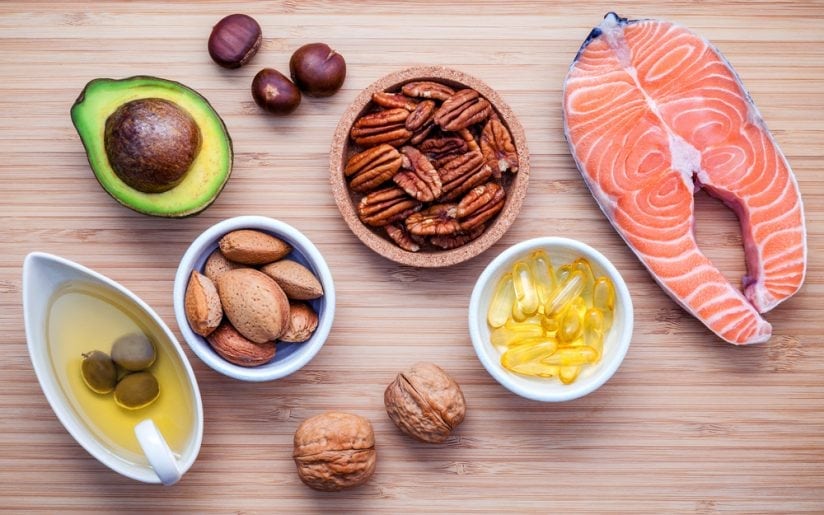Cognitive function is a term that refers to a large collection of mental functions, including but not limited to attention, concentration, language use, learning new information, memory, processing thoughts and reading comprehension.
The strength of your cognitive function abilities is directly related to your brain health. Cognitive ability is also linked to aging—it is normal to experience a certain amount of cognitive decline as you get older. However, different people experience different levels of age-related cognitive decline. Some older adults may maintain the same high levels of cognitive function well into their 80s, while others may start to show signs of cognitive decline by their 60s.
Out of all the cognitive functions, those most likely to be affected by aging are attention and memory. Of course, individual experiences will vary as far as what specific cognitive functions are affected. Researchers have tied age-related cognitive decline to changes in brain structure. This may make it sound like cognitive function is out of your control—how could you possibly change your brain structure? The reality is that there are many things you can do to boost brain health and support healthy cognition as you get older. Because it’s never too early to start protecting brain health, the following advice is applicable to adults of any age group.
Eating Right to Improve Cognitive Function
 Research has shown that the Mediterranean diet is helpful for preserving cognitive function. This diet places an emphasis on fruits, vegetables, whole grains, beans and legumes, lean protein and healthy fats like olive oil. Eating this way has also been shown to help prevent major chronic diseases and help you live longer.
Research has shown that the Mediterranean diet is helpful for preserving cognitive function. This diet places an emphasis on fruits, vegetables, whole grains, beans and legumes, lean protein and healthy fats like olive oil. Eating this way has also been shown to help prevent major chronic diseases and help you live longer.
It is easy to shift the way you eat to the Mediterranean diet with a series of small changes. Opt for fish or lean poultry instead of meats with a higher saturated fat content, like beef and pork. Eat a couple of servings of fruits and vegetables at every meal. Switch out processed grains for whole grains. Replace saturated fats, like butter, with extra-virgin olive oil. In fact, the consumption of extra-virgin olive oil has been linked with cognitive preservation, independent of the rest of the Mediterranean diet, making this healthy oil one of the most important components.
There are also specific foods that contain compounds that research has linked to better cognitive function. Incorporate the following foods into your diet to boost your memory and learning ability:
- avocado
- blueberries
- cinnamon
- cocoa
- coffee
- egg
- kale
- peppermint tea
- spinach
- walnuts
Living a Brain-Healthy Lifestyle
Making certain lifestyle choices can boost your mental functioning. Arguably, the most important thing is to get plenty of aerobic exercise. Exercise improves blood flow to the brain and improves neuroplasticity, which is the brain’s ability to grow new brain cells and form new neural connections. Exercise balances neurotransmitters, decreases the levels of stress hormones, improves memory and much more.
Getting plenty of sleep, including taking naps, is great for brain health and cognition. One study found that among adults over the age of 65, taking an hour-long nap in the afternoon improves performance on cognitive tests. Those who did not nap at all, or who took naps of a different length, did not receive this benefit.
Reducing stress will help your brain function more smoothly. In one study, volunteers who meditated and listened to music daily for three months had better memory and cognitive performance than volunteers who did not take these stress-relieving measures. In other research, just 25 minutes of meditation and yoga per day was helpful for mood as well as cognition.
Supplements to Boost Brain Health
 In conjunction with a Mediterranean diet and healthy lifestyle, certain ingredients can help boost brain health. For example, inositol and choline are two essential nutrients that are synthesized within the human body but that can also be bought as a supplement. These nutrients are found in all living cells. Inositol has neuroprotective properties, which can help preserve cognition as the decades pass. Choline is known to be very important for brain development.
In conjunction with a Mediterranean diet and healthy lifestyle, certain ingredients can help boost brain health. For example, inositol and choline are two essential nutrients that are synthesized within the human body but that can also be bought as a supplement. These nutrients are found in all living cells. Inositol has neuroprotective properties, which can help preserve cognition as the decades pass. Choline is known to be very important for brain development.
Vinpocetine is a naturally-occurring compound derived from the periwinkle plant. It has neuroprotective properties, reduces neural inflammation and improves blood flow to the brain. These factors make it great for improving cognition. It is scientifically proven to improve reaction time, and a fast reaction time can improving your functioning in a surprising number of areas.
DMAE, short for 2-dimethylaminoethanol, is a substance that’s great for improving alertness and mental clarity. It works by increasing levels of the neurotransmitter acetylcholine. This neurotransmitter is also important for memory and mood. In one 2009 study, researchers found that DMAE can help improve memory in people with cognitive impairment.
Huperzine A is a supplement derived from the moss species Huperzia serrata. This supplement helps balance neurotransmitters, improves memory and protects nerve cells. Research even suggests that huperzine A could even help with Alzheimer’s disease.
Lastly, NADH is a coenzyme derived from the B-vitamin niacin. Research shows that higher levels of NADH in the brain can help improve mental function. Another use of NADH is to treat chronic fatigue syndrome.
Incorporating some of these powerful nutrients into your diet or supplementing with a high-quality formula that provides one or more of these could help protect brain health and cognitive function as you age.



Leave a Reply